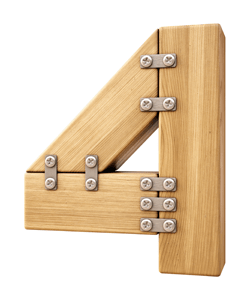Made a Searching and Fearless Moral Inventory of Ourselves Most active addicts consider themselves to be victims, and they use that stance as justification for drinking, using, and/or engaging in other compulsive/addictive behaviors.
- Nobody understands me, therefore I drink and use.
- My boss hates me. I think I’ll get even by showing up high.
- My wife is a nag, so why should I go home after work? The bar is so much more pleasant.
The above list could continue ad infinitum. However, step four puts a stop to this sort of “stinking thinking.” In working step four addicts take a hard, unrelenting look at their lives. At the end of step four addicts realize that they are not victims; rather, they are active participants in the mess their lives have become. Many addicts with long-term sobriety point to step four as the turning point in their recovery. Before working step four they were still battling all of the “problems” in their lives, the reasons they drank and used. And these reasons were nearly always external – other people, organizations, and events. After working step four addicts know differently. They understand that the problems in their life belong to them and no one else. Interestingly, there is a tremendous lack of consensus as to the best way to work this cornerstone step. All methods, however, are constructed with the same basic goal in mind: for the addict to walk away seeing how he or she has been an active participant in his or her addiction and messed-up life. One of the most commonly used methodologies is suggested below:
- List the ways in which you have avoided taking personal responsibility. This may include: blaming others for the problems in your life; using the actions of others as justification for your own bad behavior; lying to avoid taking blame for something you actually did; behaving in ways that distract or divert attention from your bad behavior. Be both specific and general, and list as many items as you can. Examples:
- I told my parents that the drugs in my bedroom belonged to a friend, not me, when they really were mine.
- I told my wife she was being paranoid, that I really did fall asleep on the couch at work, but really I was out all night doing cocaine.
- List the ways in which you have misused your anger. This may include lashing out when you were caught in your addiction, using anger to justify your addiction, and nursing grudges and resentments. Be both specific and general, and list as many items as you can. Examples:
- I am still angry about the way my high school baseball coach treated me. Every time I watch baseball on TV I feel like drinking.
- I yelled at my kids for making a mess to hide from my husband the fact that I’d been drinking all day.
- List the ways in which you have been paralyzed by fear. When did you fail to act even though you should have? What conversations or actions have you put off because you were too afraid to move forward? Be both specific and general, and list as many items as you can. Examples:
- I have hated my job for years, but I’m too afraid to quit. So instead I just secretly drink all day to dull the pain.
- I knew that my husband was cheating on me, but I was afraid that if I confronted him he would leave me. So I just sat quietly and ate prescription painkillers like candy.
- List the things you’ve done that you’re ashamed of. Include all instances where you did not live up to your own values or practice what you preached. A good place to start is listing all the things you’re keeping a secret. Be both specific and general, and list as many items as you can. Examples:
- I stole money from my family to pay for drugs.
- I ran over the neighbor’s dog while I was drinking and driving.
Yes, that’s a pretty rough road to travel. Addicts are forced to fess up to a lot of lies, fears, and bad behavior. And, amazingly, the process is not over yet. Now the addict must go back and look at each item on these four lists, asking: Where was I to blame? What was I thinking and feeling? What is my part in this? Once this process is complete, it becomes very difficult to continue blaming others for one’s actions. As more than one recovering addict has stated, “Step four taught me that the cause of all the problems in my life was me. I didn’t need to change the world and all the other people in it, I needed to change myself.”

